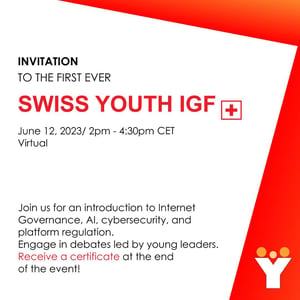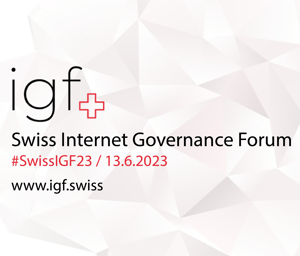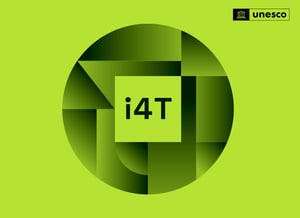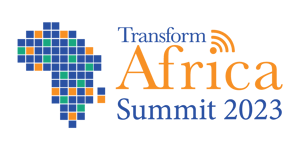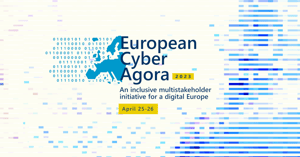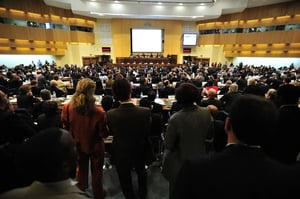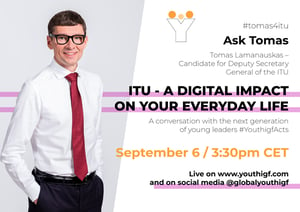
PUBLISHING
Youth IGF Publishing is dedicated to empowering youths with the knowledge and skills necessary to fully understand and engage with digital issues. Through our platform, young people can access written content that explores current digital topics from a youthful perspective. Our academic experts also weigh in with their insights to provide a comprehensive understanding of the digital landscape. By engaging with Youth IGF Publishing, young peoplIe can develop their critical thinking skills and become leaders in the rapidly evolving digital world.
WHAT'S INSIDE?
The first ever Swiss Youth IGF
On 12 June 2023, the first ever Swiss Youth IGF took place, with the support of the Swiss Federal Department of Foreign Affairs. Young Swiss leaders had a chance to meet experts in the fields of AI, cybersecurity, and platform regulation, and learn more about them from both global and Swiss perspectives. At the end of the event, the participants adopted a common youth message that was presented to the decision-makers at the Swiss IGF.
Swiss IGF 2023: Highlights from the Youth IGF
Digital-related issues of high interest to Swiss stakeholders were the central focus of the Swiss IGF 2023, which took place on 13 June in Bern and online. Three main issues attracted the attention of the audience this year: the responsible and ethical use of personal data, artificial intelligence, and platform regulation and accountability.
RIPE 86: what’s new in the world of internet number resources?
RIPE NCC held its community meeting on 22–26 May 2023 in Rotterdam, the Netherlands. Internet service providers, network operators and other interested parties were participating. Among agenda points, there were RIPE policies and procedures on allocating internet number resources, Working Groups’ updates on technical and policy issues, as well as recent industry developments and best practices.
Nordic Domain Names 2023: Keeping abreast of recent industry trends
On 8–9 May 2023, the Youth IGF was closely following an important event for the domain community — the Nordic Domain Days in Stockholm, Sweden. This annual event gathered domain industry players such as registries, registrars, service providers and investors to discuss current industry developments, as well as ways actors can work together to address different challenges.
Youth IGF Informs: UNESCO to shape regulation of global digital platforms
On 22–23 February 2023, UNESCO held an “Internet for Trust” Conference in Paris, aimed at bringing together stakeholders to discuss a set of guidelines for regulating digital platforms. The participants are seeking to improve access to information, fight misinformation, protect freedom of speech and safeguard human rights. The draft of the guidelines was discussed at the conference. UNESCO announced it aims to publish them in September this year and further hold thematic and regional consultations.
Transform Africa Summit 2023: on the way to a more digitised and prosperous Africa
On 26 April 2023, the Transform Africa Summit organised by Smart Africa kicked off in Zimbabwe. Africa’s leading annual forum brought together leaders from government, the private sector and international organisations to shape the continent’s digital transformation. From the development of groundbreaking technology to the rise of innovative start-ups, this transformation is set to revolutionise how Africans live, work, and interact. This requires strong collaboration and partnership between nations, governments, private organisations, and young digital leaders.
European Cyber Agora addresses current cybersecurity challenges
New EU Cybersecurity Skills Academy will help bridge cybersecurity skills gap.
On 25-26 April 2023, the Youth IGF took part in the European Cyber Agora, organised by Microsoft EU. The European Cyber Agora is multi-stakeholder space where experts address current cybersecurity challenges: an exciting event for cybersecurity enthusiasts and professionals alike!
WEF 2023: Key insights from the Youth IGF
The Internet Governance Forum 2022, held in Addis Ababa in Ethiopia, welcomed more than 5,000 participants from 170 countries. It was focused on five themes: connecting all people and safeguarding human rights; avoiding internet fragmentation; governing data and protecting privacy; enabling safety, security and accountability; addressing advanced technologies. At this year’s World Economic Forum in Davos, a big focus was made on digital technologies as an enabler of economic growth and social prosperity. Blockchain, the Metaverse, digital tokens, artificial intelligence and technological solutions for climate crisis mitigation were at the heart of discussions between heads of states, private sector leaders and civil society. The Youth IGF covered the event’s digital-related sessions. Here are our key conclusions from WEF 2023.
Internet Governance Forum 2022: Highlights from the Youth IGF
The Internet Governance Forum 2022, held in Addis Ababa in Ethiopia, welcomed more than 5,000 participants from 170 countries. It was focused on five themes: connecting all people and safeguarding human rights; avoiding internet fragmentation; governing data and protecting privacy; enabling safety, security and accountability; addressing advanced technologies.
So, are we ready for a full transition to digital IDs?
At the beginning of September 2021, Apple announced that the first eight states in the U.S. were signing up to include driving licences and state IDs in Apple Wallet and Apple Watch. The aim of this move is to provide people with an easier, faster and more secure way to present their driving licence or state ID. Imagine being able to travel without your passport and sailing through security checkpoints and lanes at the airport using just your iPhone. This may seem an unrealistic prospect for some, but it is beginning to look as if we may be able to experience a scenario like this in the near future.
The ITU Plenipotentiary policy highlights
The Romanian capital Bucharest was the host for this year's edition of the ITU Plenipotentiary Conference, which brought together more than 3,000 delegates from 183+ countries from 26 September to 14 October. The Youth IGF was at the conference to cover the main events and the discussions that will further shape the digital transformation over the next few years. The 2022 conference was marked by the adoption of several new resolutions.
Cryptoverse. NFTs: Growing market for skilled cyber pros or a bubble?
Most people are still confused when they hear about NFTs, trying to figure out how they actually work and what value they represent – as well as the possible risks behind this tech. Is this a growing market that will offer a lot of opportunities for professionals with cybersecurity skills?
ITU – A digital impact on your everyday life. A conversation with Tomas Lamanauskas
During a conversation with Youth IGF leaders from different parts of the world, Lamanauskas had an opportunity to listen to young people’s questions and recommendations concerning his three main priorities: connectivity, sustainability and cooperation with partners to make the ITU an organisation fit for the times we live in.
Cybersecurity skills in times of war: EU strategy
The need for more stringent cybersecurity policies became evident after the outbreak of the conflict in Ukraine. The issue of cyber skills in particular is now also regarded from the perspective of their application in wartime. Is it possible that cybersecurity skills have become a strategic tool in times of conflict?
Cybersecurity skills needs in the health sector
Cybersecurity has become vital for the healthcare sector. The very nature of medical data means that health infrastructure is probably the most vulnerable to cyber incidents. This constitutes huge value for cybercriminals because it contains sensitive information about people and their health condition.
Not in our domain: How .EU is using AI and global cooperation to tackle cybercrime
EURid takes an innovative approach to help outwit cybercriminals, including helping to identify potentially malicious registrations at source.
Cybersecurity Governance. Introduction.
By Prof. Rolf H. WEBER
The Internet as the most important global infrastructure is an ecosystem in which international law, with all its perplexities, should exercise a relevant function, particularly in view of the threats to which cybersecurity is exposed.
Youth IGF to propose the process for the global recognition of recommendations on digital
by young people
UN & EU : committed to strengthening youth voices.
From commitment to action: breaking barriers to connectivity
Internet and digital technologies have allowed a number of us to make a smooth shift to online learning and remote work. However, a big part of the world’s population has remained excluded from use of the internet.
Digital health blueprints for a post-pandemic world
As the amount of healthcare data skyrockets, so do the risks to data privacy and security. Despite the rising number of cyberattacks on hospitals and the leakage of patient information, discussions about the protection of health data are still progressing slowly.
Antitrust regulation of internet platforms: the global outlook
Large digital platforms have a major share of the digital market and are competing for users’ data. This comes as an impediment to smaller businesses that want to enter the market and sell their goods and services to consumers.
Legislative approaches for a user-centric digital space
Issues such as privacy, cybersecurity, data protection, content policy and user protection have already received great attention from legislators across the world. However, no comprehensive global legal approaches to a user-centric internet have been found so far.
Creating sustainable value and inclusive society — the role of digital platforms
Major digital platforms are present in all of our lives 24 hours a day, seven days a week. They know everything about us by analyzing our online behaviour, the content that we consume and the products that we buy.
Algorithm-based digital microcredit products: making vulnerable populations more vulnerable
We have all at some point been invited to take out a small loan that can be sent to you in minutes via your phone. Digital microcredits, these new fintech products, have become especially popular during the COVID-19 pandemic. So what are they exactly?
Green IT: ‘Fashion trend’ or asset?
The heated debate around the real power of green IT raises a question: is it just a fashionable trend that everyone is talking about or could green IT truly have some positive impact on our environment?
Artificial intelligence (AI)skills : new cybersecurity skills to protect citizens.
By Prof. Rolf H. WEBER
“…AI measures could support the normative system by realizing a procedural rights design that protects the attacked victims from the abuse of technologies…”
Artificial Intelligence as Tool for Victims’ Protection against Cybercrime.
First Ever Cybersecurity Skills Summit Special Edition
Digital violence: Individual actions for survivors
By Prof. Tim Unwin
“….people who may be in abusive relationships are forced into even closer proximity to their abusers..”
Responding to digital violence in pandemics: how to take action during Covid-19.
Keeping children safe online is even more crucial during the pandemic
The threats don’t just come from strangers, they can also come from people that children may already know, online or offline.

